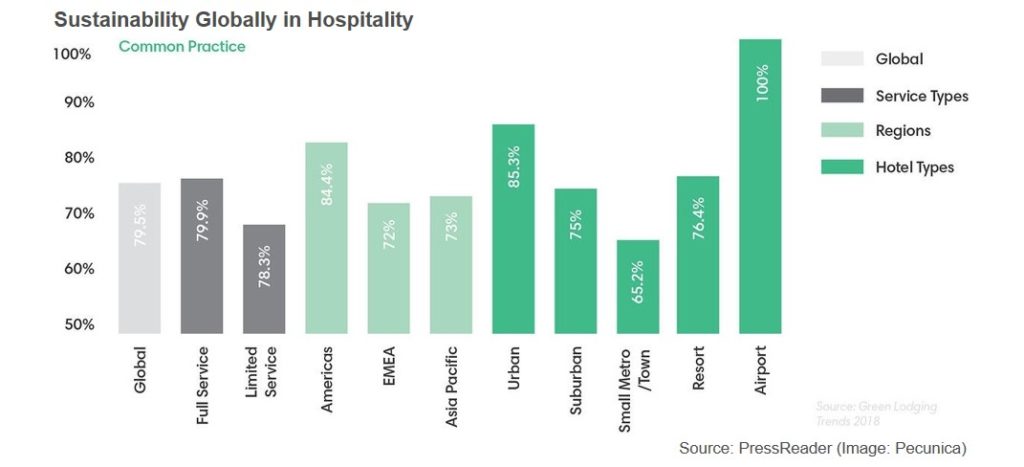What is a Hotel Operator?
Hotel Owners
Investors in hotel property own the site and building as well as the furniture, fixtures and equipment (FF&E) and operating supplies and equipment (OS&E) for the hotels. They receive the return on the investment and bear the risks of property ownership.
The owners of the hotel businesses are the hotel owners, who occupy and use the hotel properties and profit from their operation. The degree of management and control they desire over the management and operation of the properties determines a hotel's business strategy and operating model.
Developers typically exit development projects post-construction through their sale to real estate investors, frequently using forward sales before project completion. Private-equity sponsors commonly invest in hotel properties when the projects are initiated with the intention to hold the properties in their managed investment portfolio.

Hotel owners often hire hotel asset managers to control and influence the decisions of third-party operators. Where asset managers assist the owners in achieving greater involvement in the management of their hotels, the owner remains passive with regard to operating decisions.
The investment in hotel properties largely depends on the investment structure and vehicle. Real estate investment trusts (REITs) and private equity funds have led to significant changes in hotel property ownership structures and the interest of institutional investors in hotels.
The asset-light strategy is to hold a reduced portfolio of properties in favor of lighter portfolios, achieved through franchising, sale-leaseback, and management agreements. It allows hotel companies to develop and increase business with limited requirements for capital and focus on fee revenues while generating higher returns on invested capital.
A hotel's business strategy establishes the form of property and business ownership and the influence the owners have on property-level decisions and hotel operations. When hotel ownership is separated from operational management, the resulting conflict of interest leads to the agency problem.
Hotel Operators
In the hospitality industry, hotel owners are distinctly separate from hotel operators. While the hotel owner is the owner of the hotel business, the hotel operator manages the business and operates the property.
Either the owner or a third-party hotel management company can be the hotel operator, responsible for a hotel's management and operational performance. A hotel management company manages and operates the hotel on the owner's behalf, ensuring it is properly staffed, provides good service, and is profitable.
Owner-operators directly control the hotels they own and are responsible for the management and day-to-day operations – personnel, financial and procurement management – and financial performance of their hotels. The hotel properties are operated under the owner's name or through affiliation to a marketing consortium.
An independent hotel is operated by the property owner or an independent operator. Independent operators are unaffiliated third-party management companies that run hotel properties either unbranded or under some other brand on behalf of the hotel owners.
A brand management company is a hotel company that operates hotels under its brand, commonly under different "flags", for which it collects a brand fee. The properties are operated under a management contract by a brand manager or franchise agreement by local partners or the hotel owners.

A managed hotel is a property that is fully managed and operated by a brand management company for the hotel owner under one of its brands. The brand manager is responsible for the management and operation of the hotel, while the hotel owner only has the right to monitor its performance.
The owners of franchised hotels (franchisees) sign a franchise agreement with a hotel brand (franchisor) to operate the property under a franchise agreement in exchange for a franchise fee. For this operating model, hotel owners set up their own team or engage an independent operator to run the hotel.
Sustainability in Hotel Operations
Sustainable hospitality is the application of sustainable practices in hospitality and hotel operations and compliance with environmental, social and governance (ESG) principles. Hotel operators have a direct interest in promoting sustainable hospitality principles and practices throughout hotel operations to keep operational costs low, meet guest demand, protect brand reputation, and further business continuity.
A hotel's sustainable operational performance is key to:
- Maintaining asset value;
- Improving financial performance;
- Overall property and business management;
- Attracting green financing and investments;
- Meeting client demands;
- Improving staff work environment;
- Complying with regulatory requirements; and
- Brand relationship management.
The hotel operating agreement requires operators to comply with the evolving technical, architectural, and operational standards of the hotel owner or brand. It is also an efficient tool for a hotel's implementation of sustainable hospitality practices.
Operating agreements specify the requirements operators must meet. They provide a framework to operate within sustainable standards, save money, and increase property value.
Brand standards and guidelines play a central role in setting up sustainability policies at the chain/group level and are applied at the property level. For both managed and franchised hotels, brand standards are the essence of the relationship between hotel owners and brands. The flexibility and evolving status of brand standards allow chains to adapt and be proactive towards new sustainability norms and techniques.

Hotel owners and operators must adopt sustainable hospitality practices that comply with environmental, social and governance (ESG) principles. The ESG policy of the hotel operator and/or the brand is often a decisive criterion for the identification of investment opportunities by investors.
Hotel operations must conform with sustainability principles to operate most cost-effectively, boost efficiency and further the green agenda. Sustainable operations create a more sustainable environment that enhances the experience of guests and staff, provide benefit to the local community, help protect the environment and natural resources, and make investing in hotels more attractive.
Copyright © 2020 Pecunica LLC. All rights reserved.